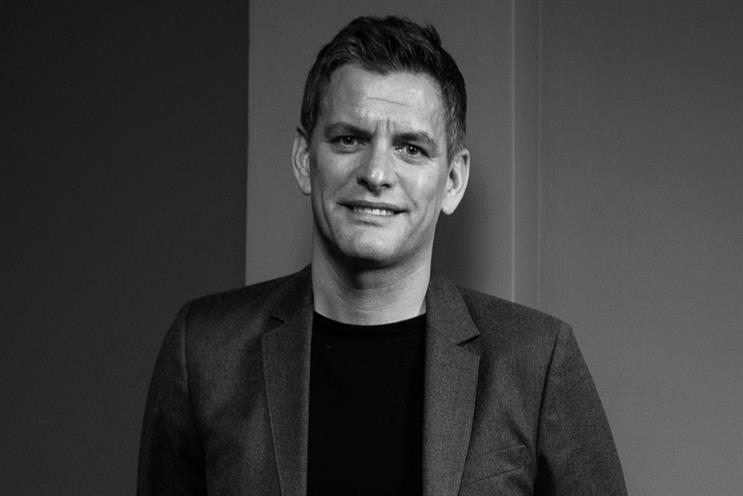The coronavirus outbreak has created a need for businesses to think and act very differently, very quickly.
Together with my business partner, I founded Croud in 2011 on the principle of flexible delivery and on the premise that the office-based 9-5 model simply could no longer satisfy the 24/7 nature of digital marketing. To adapt to this, we created a network of freelance, remote digital specialists called the Croudie Network, who are managed using a tech platform we built called Croud Control, enabling us to scale work up and down according to demand and access a global talent pool far wider than if we just had an in-house team.
The agility and ability to flex with demand means that – while we’ve undoubtedly been affected by this crisis – we are luckily now well placed to adapt to it.
We’ve had our ups and downs on this journey over the past nine years. But on the way we’ve gained invaluable insights into how agencies can build a new version of themselves for the future that is flexible and tech-enabled. These learnings have never been more relevant.
Commitment to the "right" technology
The tech was clunky and slowed things down for us in the early days. Our long-standing employees would often tell us that "it would be easier to do it myself than task out to a Croudie". For any business there needs to be the right blend between automation and manual knowledge and task sharing too.
You need a clear vision of how you want your system to work – and a fair bit of patience to make the continuous improvements needed to finesse. Nothing is going to be perfect the first time around – but by getting team and client buy-in and commitment to the process early on, we were able to build a network and technology with high standards and solid processes. This involved a lot of reinforcement from the leadership team that it was the right path to go down.
High quality is never an accident
A key challenge when you have a team working remotely is ensuring that everything produced is consistently of a high quality. This takes work to perfect. We broke down projects into smaller templated tasks and facilitated the process of subbing out work using Croud Control.
This multi-level QA process is arguably the most important part of the whole of our business. From the beginning we could see the challenges it presented – one such key challenge being filtering out the chancers.
We would frequently have applicants claim to have skills or qualifications they did not have. For roles that required fluency in other languages, we would even see people try and pass the interview with swift use of Google Translate. A handy tool – but not quite good enough.
This told us our QA needed to have manual and automated layers, which, despite being expensive and time-consuming, has meant we have a much more cohesive business with more qualified Croudies. The technology now automatically finds the most skilled person for the job, checks if they’re available and then part-quality checks the work before it gets to a human being. It was a challenging but not impossible task and one that is paying off now.
Communication is key
Businesses around the world are now learning to communicate remotely. Many of these skills have been honed over the past nine years of Croud working with remote workers – Google Hangouts sits at the heart of how we engage with Croudies. And we do a monthly webinar where we invite every one of our Croudies to engage with us via a Zoom call, to find out more about the business and ask questions. We’ve been doing this for years, and it has helped us transition seamlessly to remote working for our permanent workforce.
Create the ability to scale up and down
Like any agency, we have been impacted by the scaling back of work. We know we have Croudies who – to a greater or lesser extent – rely on work from Croud. But for the sake of our Croudies and the health of the business, it’s important that if and when we pull back on Croudie usage (like during the current crisis) it’s done gradually to reflect the pull back across the whole business.
Over the years we’ve learnt that if we pull back too far it’s harder to scale back up quickly. Again, we lean on tech to help our decision-making here. We have granular insight into the data around margins, utilisation of internal teams, availability of Croudies, their cost and skillsets, through Croud Control, our "agency operating system". This enables exact delivery against client requirements while allowing operations to be scaled back.
A change of perception
Ultimately the biggest challenge we faced when founding Croud was fighting the perceptions of a "remote agency". We struggled to get people – both externally and internally – to trust in the concept that incredible work could be produced by anything other than a fully office-bound team of full-time, in-house employees.
For us it was only when Netflix chose Croud to help roll out its business across Europe that we gained the confidence to challenge those ways of thinking. The current health crisis we face has undoubtedly sped up the move to remote working and attitudes towards it for all – but this is a process that has been accelerating since the dawn of the internet.
This is a time of significant cultural change, and brands and agencies have a responsibility to use technology to shape a future that works better for both employees and clients. There is no going back to how things were, because there simply is no need to.
Luke Smith is chief executive and co-founder of Croud


